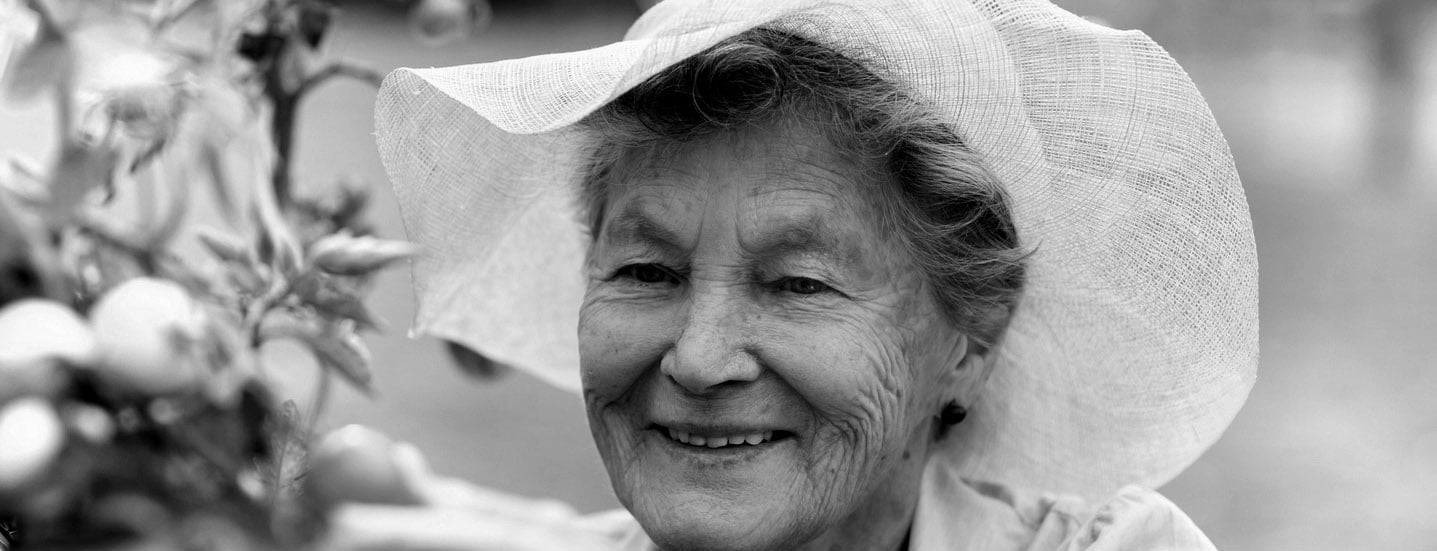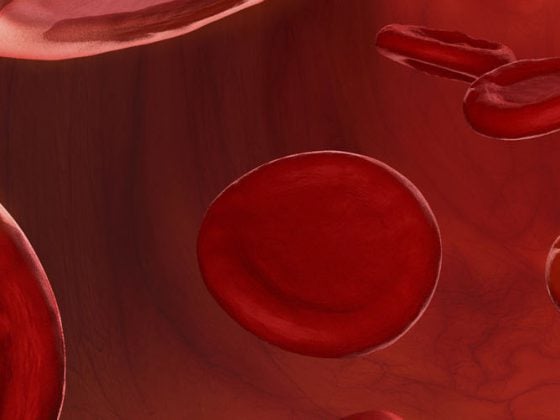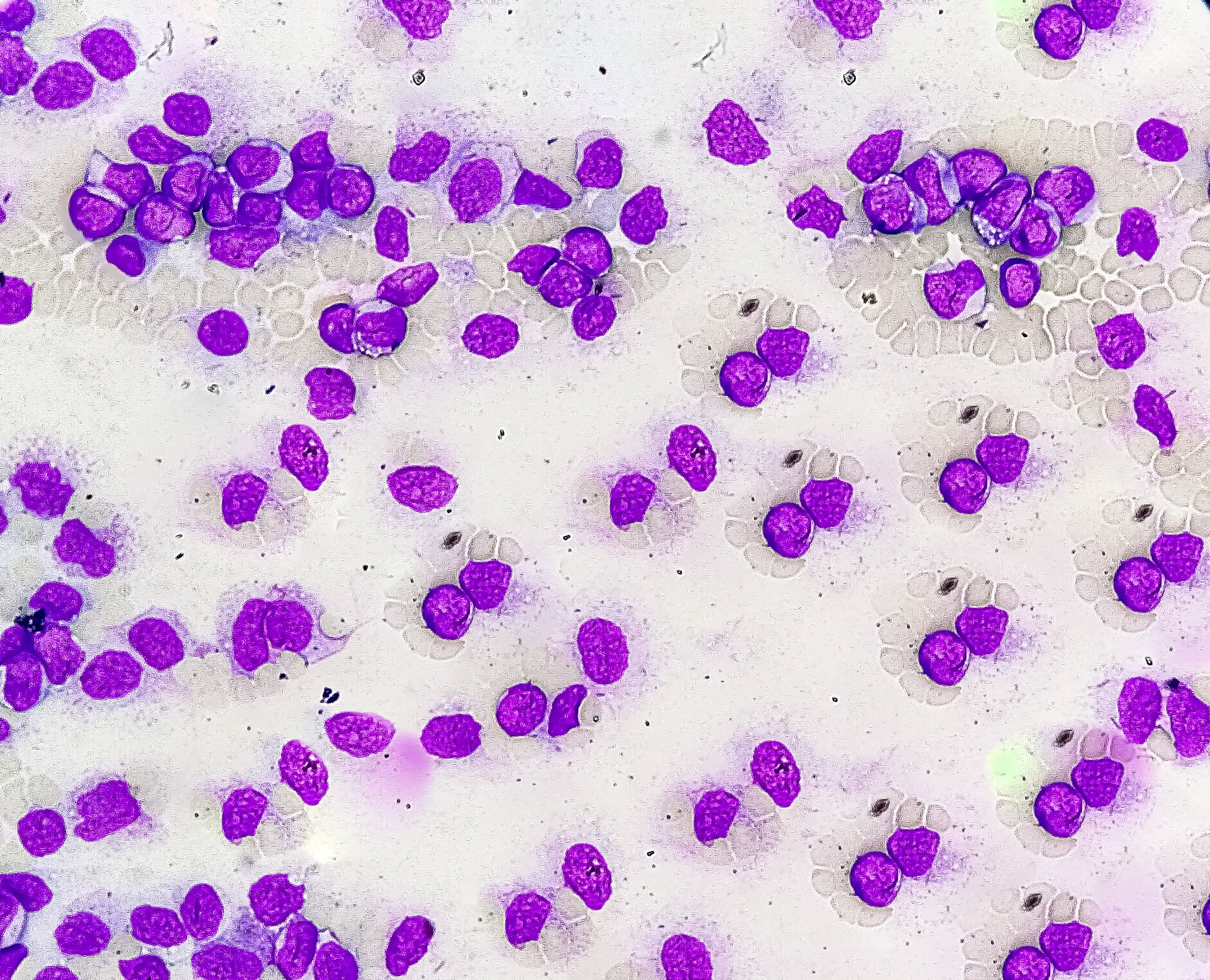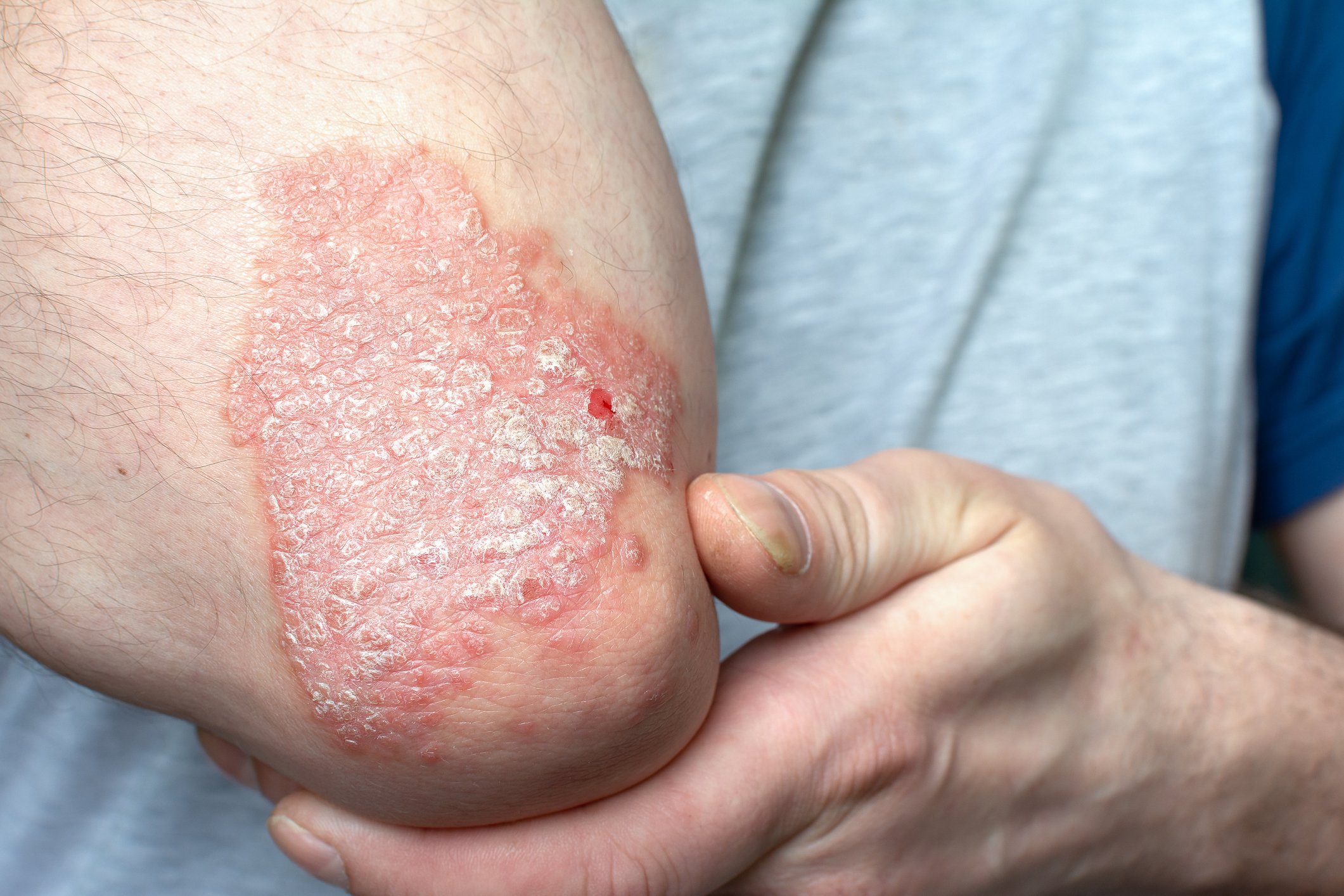One might assume that diseases in old age can only be treated with synthetic drugs, since the typical diseases in this last stage of life are often considerable and have to be treated with very effective preparations. However, the present review shows that there are also age-related diseases that can be treated very effectively with herbal medicines.
Introduction
As we age, our bodies become susceptible to various ailments. Such typical age-related complaints include heart failure, hypertension, cognitive impairment, and benign prostatic hyperplasia (BPH). Some of such diseases, which appear earlier in some people and later in others or never at all, can be successfully treated with phytotherapy. In the following, such treatments are presented.
Heart trouble
The treatment of heart failure with hawthorn preparations was reported here in the last issue (HAUSARZT PRAXIS 1/2017). That is why this article no longer discusses treatment with Crataegus extracts for heart failure.
There are also herbal recipes with folk medicine tradition against hypertension. For this purpose, tinctures of Indian snakeroot (Rauwolfia serpentina), mistletoe (Viscum album), olive tree (Olea europea), heartwort (Leonurus cardiaca) and bush clover (Lespedeza capitata) are prepared in various mixtures. In some cases, hawthorn is also used. Since Rauwolfia is rather strong acting and has a somewhat narrow therapeutic range, it should be noted there that only exactly standardized Rauwolfia tinctures are used, which allow precise dosing. The maximum daily dose is 6 mg of total Rauwolfia alkaloids, corresponding to 0.6 mg of reserpine.
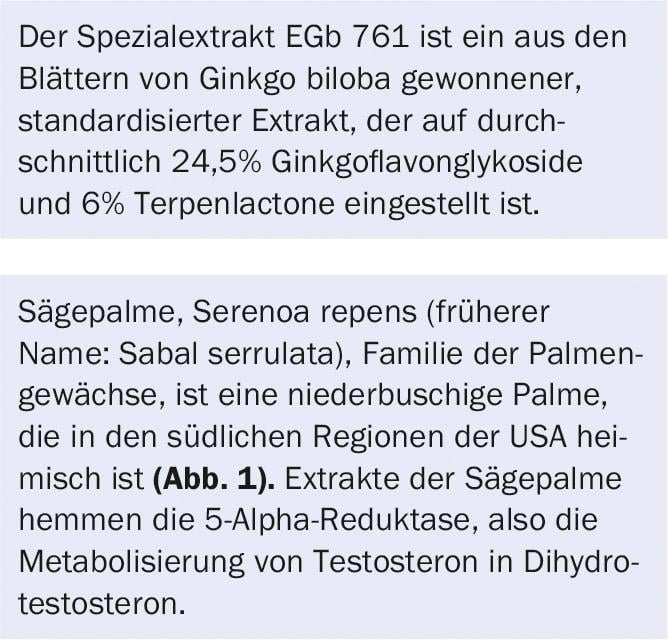
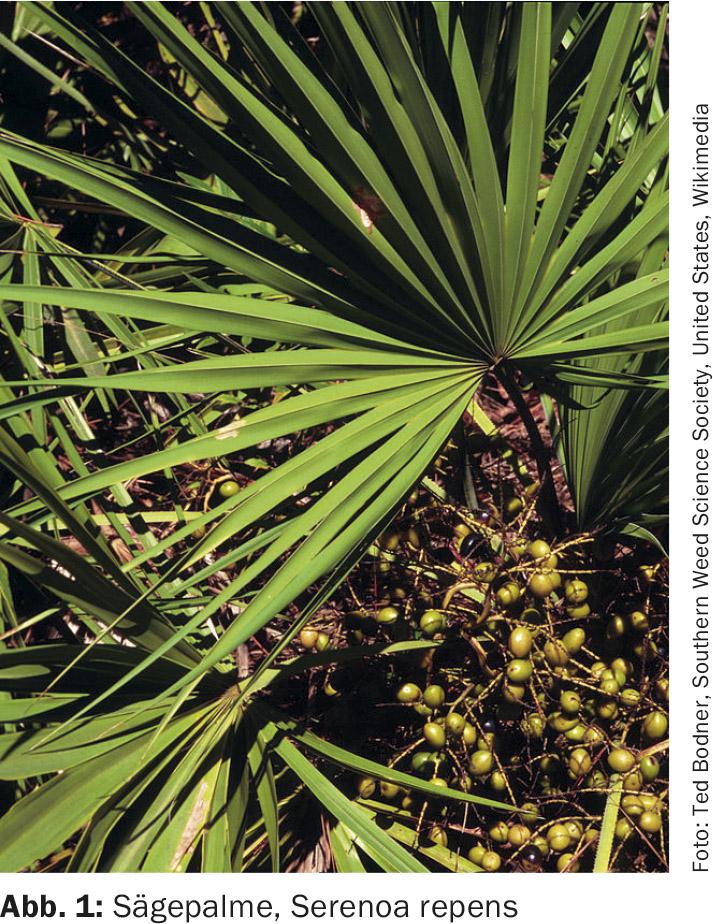
Cognitive disorders
Many seniors suffer from cognitive disorders, which are manifested by forgetfulness, lack of concentration and other brain disorders. Due to the increasing aging of our society, we will have to deal with many more people with more or less pronounced cognitive disorders in the future.
In addition to conventional medicines, the medicinal plant Ginkgo biloba has proven effective in the treatment of cognitive disorders. Ginkgo biloba, Japanese temple tree, is one of the best studied medicinal plants. There are dozens of impeccable clinical studies documenting the efficacy of Ginkgo biloba. Most studies were documented with the standardized Ginkgobiloba extract EGb 761. This concerns preventive efficacy [1] as well as disease progression [2] and alleviation of neuropsychiatric symptoms in dementia [3]. However, these references are only a few evidences of a large selection of similar clinical studies.
The GuidAGe study demonstrates the preventive efficacy of EGb 761. A subgroup evaluation showed that, in a group of subjects who had at least four years of
EGb 761 took, Alzheimer’s dementia developed in only 1.6% of those affected, in contrast to the placebo group, in which the corresponding rate was 3.0%.
Patients with dementia often experience neuropsychiatric symptoms, which can be a great burden to family members and caregivers. The study by Ihl et al. [3] shows that there is a statistically significant and clinically relevant superiority of the EGB 761 group over placebo in terms of overall improvement in neuropsychiatric symptoms accompanying dementia and also a significant superiority in terms of stress reduction in caregivers.
Flavonglycosides and terpene lactones have been identified as efficacy-determining constituents of Ginkgo biloba, serving as radical scavengers, preventing the formation of A-beta oligomers, promoting the degradation of alpha-secretase, contributing to mitochondrial protection and function, and increasing blood viscosity with improved microcirculation.
Benign prostatic hyperplasia (BPH)
In men, age correlates with the percentage chance of developing Benign Prostatic Hyperplasia (BPH). So this occurs in about 50% of fifty-year-olds and correspondingly in about 80% of octogenarians. Conservative treatment includes therapy with alpha-adrenoreceptor blockers such as tamsulosin or alfuzosin and with 5-alpha-reductase inhibitors.
Phytotherapeutically, various medicinal plants can be used, of which saw palmetto, Serenoa repens, has become popular in recent years. Most herbal preparations for BPH consist of extracts of saw palmetto. There are always preparations based on pumpkin seeds (Cucurbita pepo), the African plum tree (Pyogenum africanum), nettle (Urtica dioica), as well as rye pollen (Secale cereale). However, their importance has declined sharply in favor of the sawplame.
The efficacy of saw palmetto was questioned by a 2009 Cochrane Review [4]. However, this review contained a number of major methodological errors that call into question the conclusions of the review. Despite publication of these criticisms [5], the review was republished almost unchanged in 2012.
There are a number of impeccable clinical studies documenting the efficacy of saw palmetto for BPH. Especially many publications have been published about a combination of saw palmetto and nettle. The combination is called Pro 160/120 and consists of 160 mg of a standardized saw palmetto extract and 120 mg of an equally standardized nettle extract. This combination makes a lot of sense, as it has a synergistic effect. Saw palmetto inhibits 5-alpha reductase and nettle inhibits aromatase, which catalyzes the metabolization of testosterone to estrogen. The two medicinal plant extracts exert synergistic effects in the treatment of BPH [6]. In its guidelines for phytotherapeutic therapy of benign prostatic syndrome (BPS), the German Society of Urology recommends the use of PRO 160/120 in the dose of 2× 1/d, i.e. 320 mg of Serenoa repens and 240 mg of Urtica dioica.
Preparations based on saw palmetto, especially the combination with nettle, are therefore ideally suited for the treatment of age-related benign prostate.
Summary
The three geriatric complaints presented can be treated very well with herbal medicines. These offer themselves as alternatives to conventional treatment methods.
Aging depression as well as degenerative joint diseases can also be treated phytotherapeutically. This will be discussed in a later article.
Literature:
- Andrieu S, et al: GuideAGe Study: A 5-Year Double Blind, Randomised Trial of EGb 761® for the Prevention of Alzheimer’s Disease in elderly Subjects with Memory Complaints, Current Alzheimer Research, 2008; 5: 406-415.
- Ihr R, et al: Baseline neuropsychiatric symptoms are effect modifiers in Ginkgo biloba extract (EGb 761®) treatment of dementia with neuropsychiatric features. Retrospective data analyses of a randomized controlled trial, J Neurol Sci. 2010 Dec 15; 299(1-2): 184-7. doi: 10.1016/j.jns.2010.08.033.
- Ihl R, Bachinskaya N, Korczyn A.D, et al: Efficacy and safety of an oncedaily formulation of Ginkgo biloba extract EGb 761® in dementia with neuropsychiatric features. A randomized controlled trial, J Psychiatr Res 2012 Jun; 46(6): 716-723.
- Tacklind J, MacDonald R, Rutks I, Wilts T.J: Serenoa repens for benign prostatic hyperplasia (Review), The Cochrane Library 2009; Issu 2, published by John Wiley&Sons, Ltd.
- Bilia A.R, et al: The Cochrane Review on Serenoa repens in Benign Prostatic Hyperplasia, AM thema Phytotherapy 2009(4); 9: 10-13.
- Koch E, et al: Pharmacological effects of sabal and urtica extracts as a basis for rational drug therapy of benign prostatic hyperplasia, Urologist B 1994; 34: 90-95.
HAUSARZT PRAXIS 2017; 12(2): 2-3

